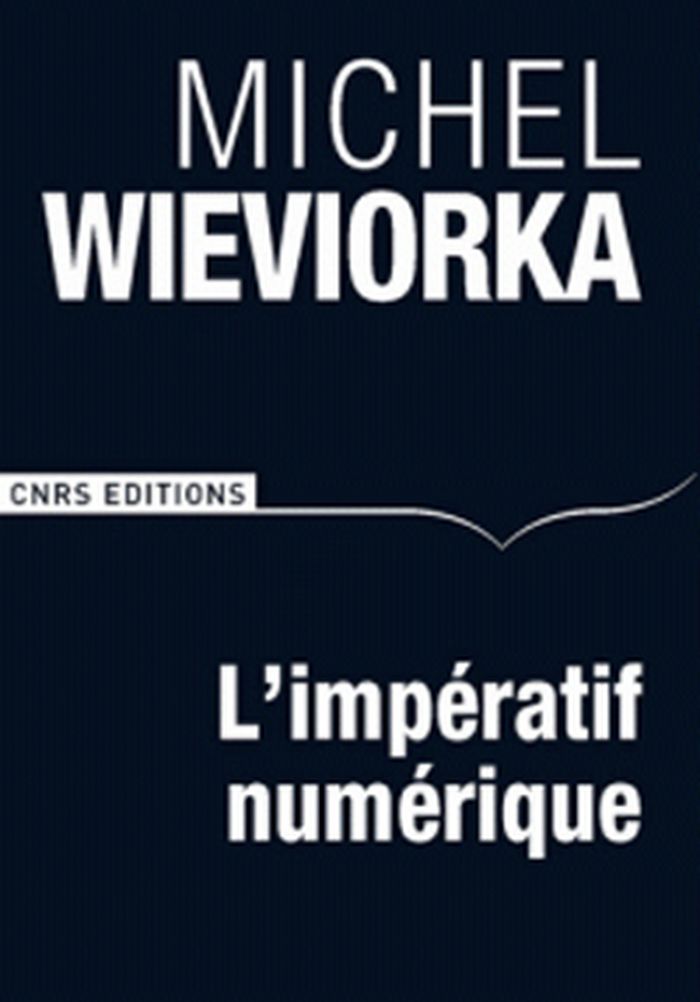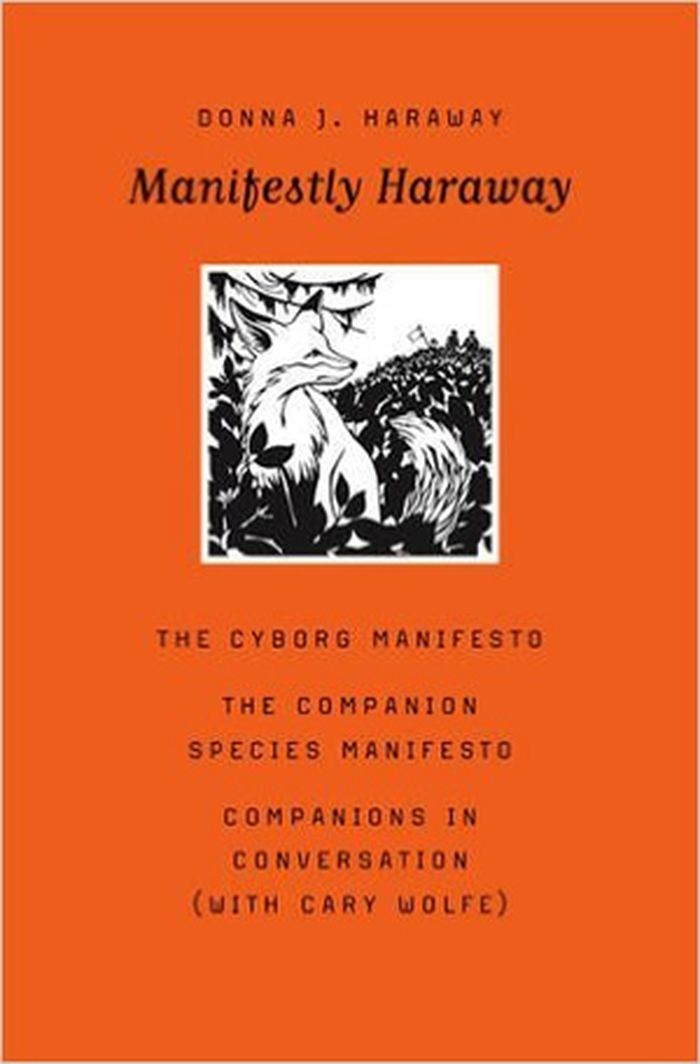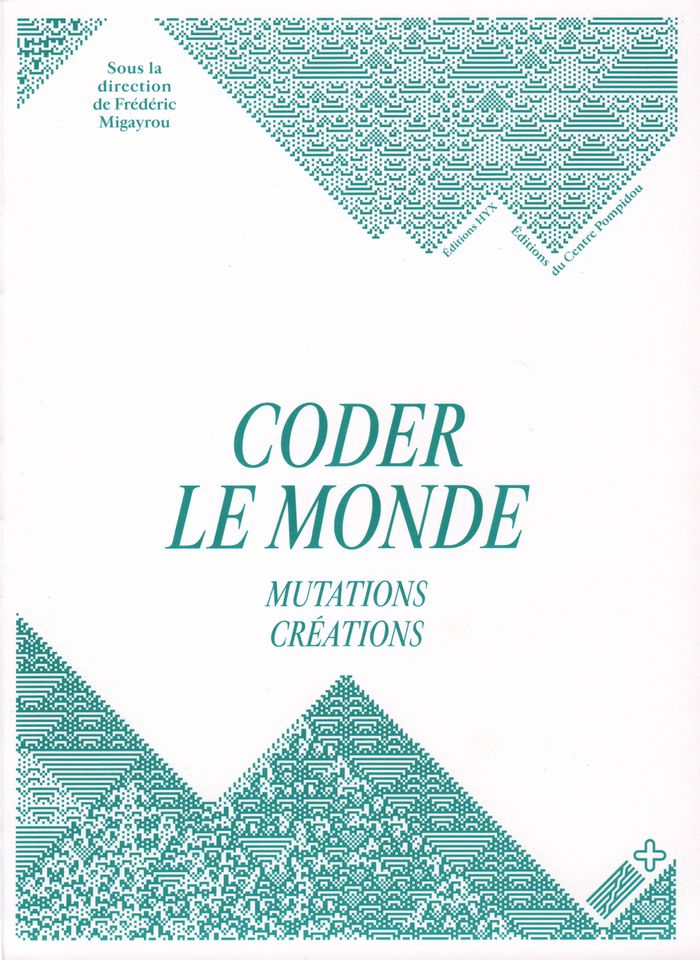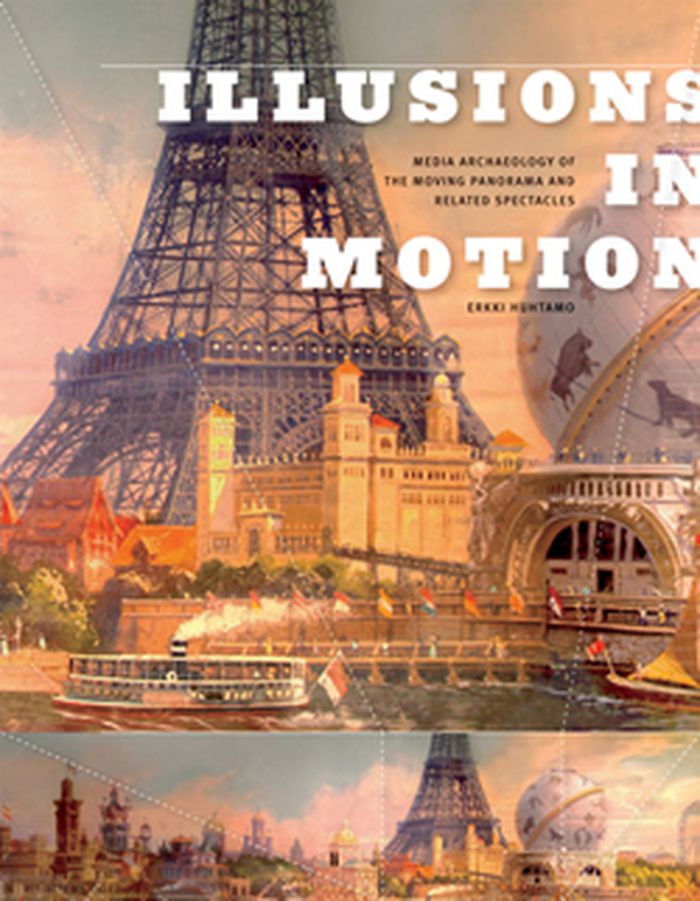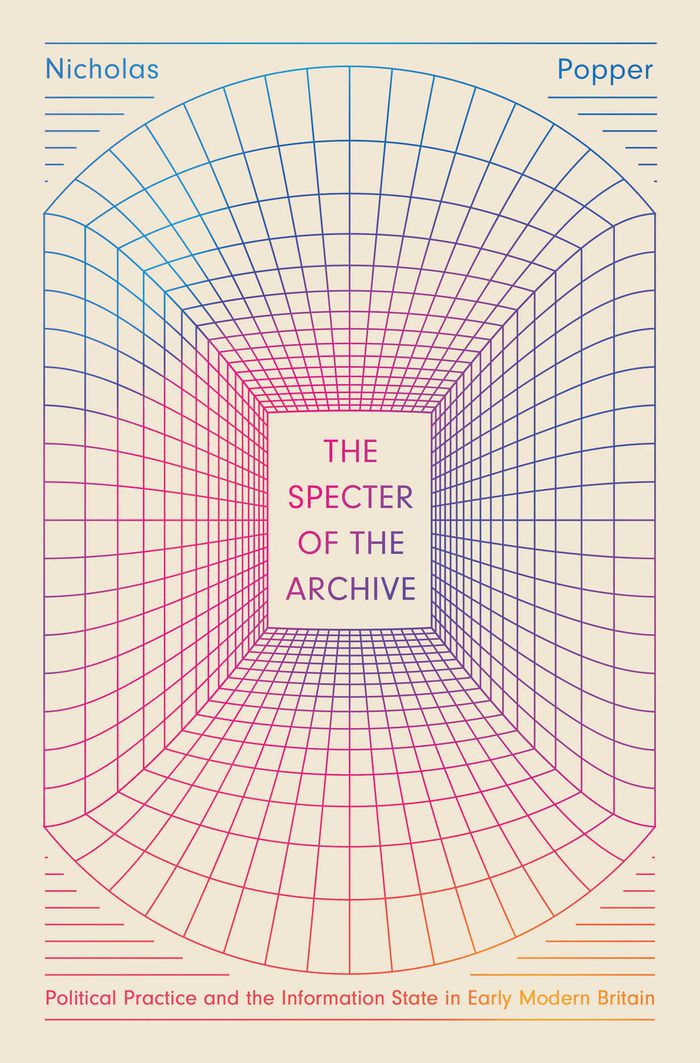L'impératif numérique
$7.95
(available in store)
Summary:
Une invitation, pour les sceptiques et tous ceux qui croient en l’utilité des sciences humaines et sociales, à faire davantage l’expérience de notre environnement numérique...
L'impératif numérique
Actions:
Price:
$7.95
(available in store)
Summary:
Une invitation, pour les sceptiques et tous ceux qui croient en l’utilité des sciences humaines et sociales, à faire davantage l’expérience de notre environnement numérique...
Archive, library and the digital
Manifestly Haraway
$29.95
(available to order)
Summary:
Provocative, and controversial when first published thirty years ago, Donna Haraway’s “Cyborg Manifesto” is even more relevant today, when the divisions that she so eloquently challenges—of human and machine but also of gender, class, race, ethnicity, sexuality, and location—are increasingly complex. The subsequent “Companion Species Manifesto,” which further questions(...)
Manifestly Haraway
Actions:
Price:
$29.95
(available to order)
Summary:
Provocative, and controversial when first published thirty years ago, Donna Haraway’s “Cyborg Manifesto” is even more relevant today, when the divisions that she so eloquently challenges—of human and machine but also of gender, class, race, ethnicity, sexuality, and location—are increasingly complex. The subsequent “Companion Species Manifesto,” which further questions the human–nonhuman disjunction, is no less urgently needed in our time of environmental crisis and profound polarization.
Archive, library and the digital
$56.00
(available to order)
Summary:
À l'ère numérique, le code est au coeur de notre quotidien, il modifie notre rapport au monde et aux autres. « Coder le monde » présente un état de la création digitale contemporaine dans différentes disciplines. Revenant sur l'histoire du code numérique et la manière dont les artistes s'en sont emparés depuis l'avènement de l'ordinateur dans les années 1960, ce livre(...)
Coder le monde : mutations créations
Actions:
Price:
$56.00
(available to order)
Summary:
À l'ère numérique, le code est au coeur de notre quotidien, il modifie notre rapport au monde et aux autres. « Coder le monde » présente un état de la création digitale contemporaine dans différentes disciplines. Revenant sur l'histoire du code numérique et la manière dont les artistes s'en sont emparés depuis l'avènement de l'ordinateur dans les années 1960, ce livre fait apparaître un univers esthétique et critique commun qui questionne notre quotidien entièrement irrigué par les logiques numériques. Les artistes, les musiciens, les écrivains, les architectes, les créateurs de toutes disciplines ont en effet été les prescripteurs et les inventeurs d'une approche alternative du code.
Archive, library and the digital
Moving archives
$85.00
(available to order)
Summary:
The image of the dusty, undisturbed archive has been swept away in response to growing interest across disciplines in the materials they house and the desire to find and make meaning through an engagement with those materials. Archival studies scholars and archivists are developing related theoretical frameworks and practices that recognize that the archives are anything(...)
Moving archives
Actions:
Price:
$85.00
(available to order)
Summary:
The image of the dusty, undisturbed archive has been swept away in response to growing interest across disciplines in the materials they house and the desire to find and make meaning through an engagement with those materials. Archival studies scholars and archivists are developing related theoretical frameworks and practices that recognize that the archives are anything but static. Archival deposits are proliferating, and the architects, practitioners, and scholars engaged with them are scarcely able to keep abreast of them. Archives, archival theory, and archival practice are on the move. But what of the archives that were once safely housed and have since been lost, or are under threat? What of the urgency that underscores the appeals made on behalf of these archives? As scholars in this volume argue, archives—their materialization, their preservation, and the research produced about them—are moving in a different way: they are involved in an emotionally engaged and charged process, one that acts equally upon archival subjects and those engaged with them. So too do archives at once represent members of various communities and the fields of study drawn to them. "Moving Archives" grounds itself in the critical trajectory related to what Sara Ahmed calls “affective economies” to offer fresh insights about the process of archiving and approaching literary materials. These economies are not necessarily determined by ethical impulses, although many scholars have called out for such impulses to underwrite current archival practices; rather, they form the crucial affective contexts for the legitimization of archival caches in the present moment and for future use.
Archive, library and the digital
Database network interface
$59.95
(available in store)
Summary:
Throughout human history, the library, the archive and the museum have embodied knowledge, information and collective culture to such an extent that it is possible to compare systems of information organisation with spatial and architectural typologies. The publication, conceived in the occasion of the exhibition at Archizoom (EPFL), dives into the relationship between(...)
Archive, library and the digital
October 2021
Database network interface
Actions:
Price:
$59.95
(available in store)
Summary:
Throughout human history, the library, the archive and the museum have embodied knowledge, information and collective culture to such an extent that it is possible to compare systems of information organisation with spatial and architectural typologies. The publication, conceived in the occasion of the exhibition at Archizoom (EPFL), dives into the relationship between architectural and digital culture beyond the pure rhetoric of the digital turn and the digital as architectural style. The hypothesis is that the notions of "database", "network" and "interface"—common in the field of information technology—could be related to architectural issues of a formal, compositional or symbolic nature, of which spatial arrangements, plans or façades are the expression. In this sense, the publication presents a selection of case studies highlighting the possible links between digital and non-digital cultural projects and their architectural counterparts.
Archive, library and the digital
Promenade en Enfer
$29.95
(available to order)
Summary:
Longtemps soumises à la censure ecclésiastique, certaines bibliothèques conservaient les ouvrages mis à l’Index dans un huis clos mythique nommé Enfer. La simple lecture d’une œuvre proscrite par l’Église pouvait entraîner la damnation éternelle de l’âme. La levée de l’Index dans les années 1960 a entraîné le démantèlement des sections logeant les livres interdits qui ont(...)
Promenade en Enfer
Actions:
Price:
$29.95
(available to order)
Summary:
Longtemps soumises à la censure ecclésiastique, certaines bibliothèques conservaient les ouvrages mis à l’Index dans un huis clos mythique nommé Enfer. La simple lecture d’une œuvre proscrite par l’Église pouvait entraîner la damnation éternelle de l’âme. La levée de l’Index dans les années 1960 a entraîné le démantèlement des sections logeant les livres interdits qui ont disparu tout en conservant leurs secrets. L’une des rares collections encore existantes des livres mis à l’Index, regroupant des centaines de volumes, se retrouve cependant dans la bibliothèque historique du Séminaire de Québec, fondé en 1663. Pierrette Lafond lève le voile sur ces ouvrages jugés immoraux, hérétiques ou dangereux, témoins silencieux de la censure pendant trois siècles et qui racontent un volet occulté de l’histoire morale et culturelle du Québec.
Archive, library and the digital
$54.95
(available to order)
Summary:
In Illusions in Motion, Erkki Huhtamo excavates this neglected early manifestation of media culture in the making. The moving panorama was a long painting that unscrolled behind a “window” by means of a mechanical cranking system, accompanied by a lecture, music, and sometimes sound and light effects. Showmen exhibited such panoramas in venues that ranged from opera(...)
February 2013
Illusions in motions : media archaeology of the moving panorama and related spectacle
Actions:
Price:
$54.95
(available to order)
Summary:
In Illusions in Motion, Erkki Huhtamo excavates this neglected early manifestation of media culture in the making. The moving panorama was a long painting that unscrolled behind a “window” by means of a mechanical cranking system, accompanied by a lecture, music, and sometimes sound and light effects. Showmen exhibited such panoramas in venues that ranged from opera houses to church halls, creating a market for mediated realities in both city and country.
Library: An Unquiet History
$18.95
(available to order)
Summary:
Through the ages, libraries have not only accumulated and preserved but also shaped, inspired, and obliterated knowledge. Now they are in crisis. Former rare books librarian and Harvard MetaLAB visionary Matthew Battles takes us from Boston to Baghdad, from classical scriptoria to medieval monasteries and on to the Information Age, to explore how libraries are built and(...)
March 2015
Library: An Unquiet History
Actions:
Price:
$18.95
(available to order)
Summary:
Through the ages, libraries have not only accumulated and preserved but also shaped, inspired, and obliterated knowledge. Now they are in crisis. Former rare books librarian and Harvard MetaLAB visionary Matthew Battles takes us from Boston to Baghdad, from classical scriptoria to medieval monasteries and on to the Information Age, to explore how libraries are built and how they are destroyed: from the scroll burnings in ancient China to the burning of libraries in Europe and Bosnia to the latest revolutionary upheavals of the digital age. A new epilogue elucidates the preservation of knowledge amid the creative destruction of twenty-first century technology. 10 illustrations.
The library beyond the book
$26.50
(available in store)
Summary:
With textbook readers and digital downloads proliferating, it is easy to imagine a time when printed books will vanish. Such forecasts miss the mark, argue Jeffrey Schnapp and Matthew Battles. Future bookshelves will not be wholly virtual, and libraries will thrive—although in a variety of new social, cultural, and architectural forms. Schnapp and Battles combine deep(...)
Archive, library and the digital
June 2014
The library beyond the book
Actions:
Price:
$26.50
(available in store)
Summary:
With textbook readers and digital downloads proliferating, it is easy to imagine a time when printed books will vanish. Such forecasts miss the mark, argue Jeffrey Schnapp and Matthew Battles. Future bookshelves will not be wholly virtual, and libraries will thrive—although in a variety of new social, cultural, and architectural forms. Schnapp and Battles combine deep study of the library’s history with a record of institutional and technical innovation at metaLAB, a research group at the forefront of the digital humanities.
Archive, library and the digital
The specter of the archive: Political practice and the information state in early modern Britain
$53.95
(available to order)
Summary:
In ''The Specter of the Archive'', Nicholas Popper shows that earlier eras had to grapple with the same problem—how to deal with too much information at their fingertips. He reveals that early modern Britain was a society newly drowning in paper, a light and durable technology whose spread allowed statesmen to record drafts, memoranda, and other ephemera that might(...)
The specter of the archive: Political practice and the information state in early modern Britain
Actions:
Price:
$53.95
(available to order)
Summary:
In ''The Specter of the Archive'', Nicholas Popper shows that earlier eras had to grapple with the same problem—how to deal with too much information at their fingertips. He reveals that early modern Britain was a society newly drowning in paper, a light and durable technology whose spread allowed statesmen to record drafts, memoranda, and other ephemera that might otherwise have been lost, and also made it possible for ordinary people to collect political texts. As original paperwork and copies alike flooded the government, information management became the core of politics. Focusing on two of the primary political archives of early modern England, the Tower of London Record Office and the State Paper Office, Popper traces the circulation of their materials through the government and the broader public sphere.
Archive, library and the digital
